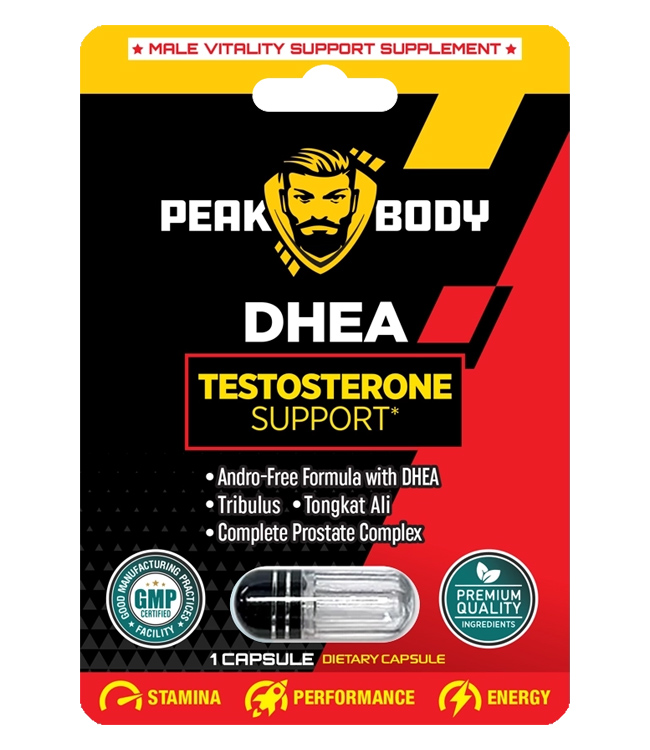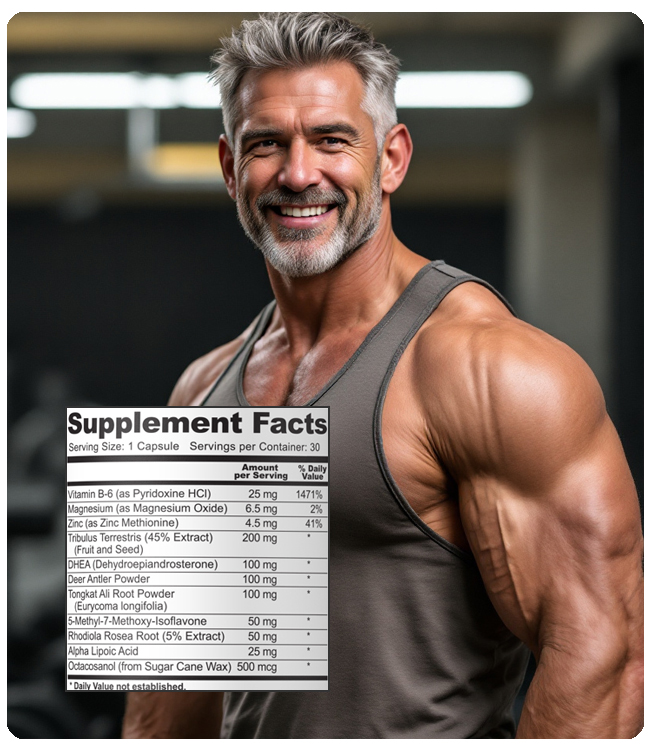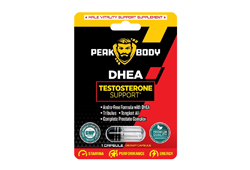- Home
- Testosterone Support
- DHEA Testosterone 7 Pack
In-Stock
Low testosterone and high DHT together harm hair follicles, causing thinning and loss, especially in those prone to it. Hormone balance is key for healthy hair.
Manufacturer
PeakBodyDosage
TrialQuantity
Your Savings
Maximum Doses
Cost Per Dose
Price
$
The Intricate Relationship Between Hormones and Hair Follicles
Its quite fascinating to consider the delicate interplay of various biological factors within the human body, and the health of our hair follicles is no exception. Interestingly, when we delve into the hormonal environment surrounding these tiny structures responsible for hair growth, we discover a rather challenging scenario for them. Specifically, your hair follicles often experience a significant struggle when they are simultaneously exposed to the coexistence of low testosterone and high dihydrotestosterone (DHT) levels. This particular hormonal combination can create a less than optimal environment for robust and healthy hair growth, potentially contributing to various hair-related issues.
The Complex Dynamics of Testosterone and DHT on Hair Health
To further elaborate on this intriguing observation, its crucial to understand that testosterone, while often associated with masculine traits, plays a vital role in numerous bodily functions, including hair growth. However, testosterone itself can be converted into another hormone called dihydrotestosterone (DHT) through the action of an enzyme known as 5-alpha reductase. DHT is a more potent androgen than testosterone and has a significant impact on hair follicles. In individuals genetically predisposed to androgenetic alopecia, also known as male pattern baldness or female pattern hair loss, DHT can bind to receptors in the hair follicles, causing them to miniaturize over time. This miniaturization leads to the production of thinner, shorter, and eventually no hair.
Therefore, the simultaneous presence of low circulating levels of testosterone alongside elevated levels of DHT creates a problematic situation for hair follicles. The lower overall testosterone might not be sufficiently supporting healthy hair growth, while the higher concentration of DHT exacerbates the miniaturization process in susceptible follicles. This dual challenge can accelerate hair thinning and loss, making it a key area of interest in understanding and addressing various forms of alopecia.
Exploring the Effects of Low and High Testosterone Levels
When considering the broader impact of testosterone on mens health, its widely recognized that the effects of low testosterone levels are generally much more pronounced and can lead to a wider range of health complications compared to the effects of high testosterone levels. While high testosterone can have certain effects, such as increased aggression or acne in some individuals, the consequences of insufficient testosterone are often more systemic and significantly impact overall well-being.
The Far-Reaching Consequences of Low Testosterone
Numerous health problems are directly or indirectly caused by chronically low testosterone levels in men. These issues can span various physiological and psychological domains. For instance, low testosterone is frequently associated with decreased libido and sexual function, including erectile dysfunction. Furthermore, it can lead to a reduction in muscle mass and strength, making it harder to maintain physical fitness. Bone density can also be negatively affected, increasing the risk of osteoporosis and fractures. Energy levels often plummet, leading to persistent fatigue and a general feeling of malaise. Cognitive functions, such as concentration and memory, can also be impaired. Mood disturbances, including depression, irritability, and a decreased sense of well-being, are also commonly reported in men with low testosterone. Beyond these, low testosterone has been linked to an increased risk of cardiovascular problems, metabolic syndrome, and even an increased risk of mortality in some studies. Therefore, maintaining healthy testosterone levels is crucial for overall health and quality of life in men.
The Comparatively Milder Effects of High Testosterone
In contrast, while elevated testosterone levels can have certain effects, they are generally considered less detrimental to overall health compared to the wide-ranging problems associated with low testosterone. Some potential effects of high testosterone in men can include acne, oily skin, increased body hair growth, and potentially mood swings or increased aggression in some individuals. In the long term, very high levels of testosterone, particularly those achieved through exogenous administration, can potentially lead to issues such as prostate enlargement, sleep apnea, and cardiovascular problems. However, naturally occurring high testosterone levels within a certain physiological range are often not associated with the same severity or breadth of health issues seen with low testosterone. This stark contrast underscores the critical importance of adequate testosterone levels for maintaining mens health and well-being.
Ultimate lifestyle products for optimal male health.





